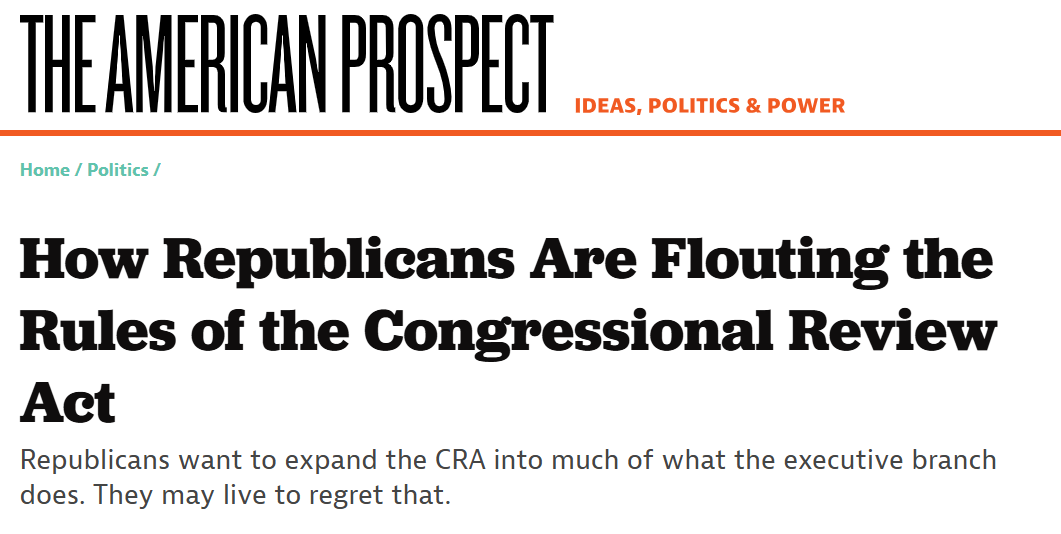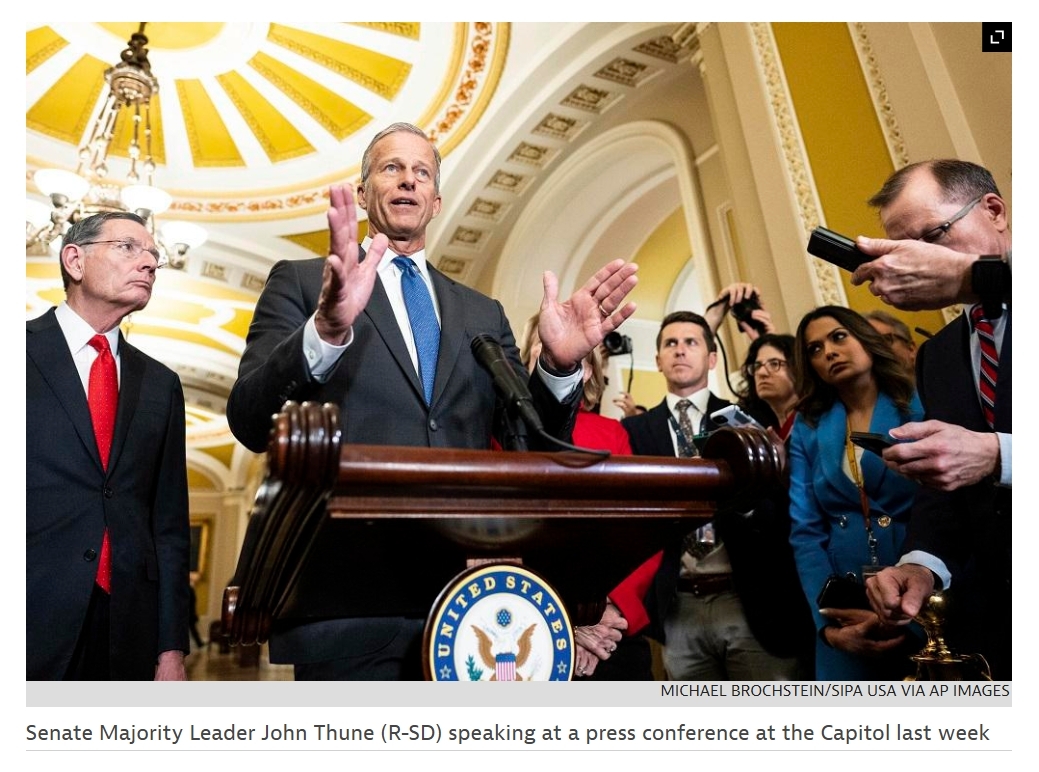How Republicans Are Flouting the Rules of the Congressional Review Act
 https://prospect.org/politics/2025-04-03-republicans-flouting-rules-congressional-review-act/
https://prospect.org/politics/2025-04-03-republicans-flouting-rules-congressional-review-act/

The Congressional Review Act (CRA) is a sort of legislative loophole that gives Congress the power to nullify recent federal regulations by a majority vote. Because CRA resolutions avoid the legislative filibuster, it’s one of the few types of congressional actions that can regularly pass in this polarized era. Of the four pieces of legislation Donald Trump has signed into law this year, two have been CRA resolutions, and
another six, including two involving
Consumer Financial Protection Bureau regulations, are on the verge of passage.
Perhaps for this reason, Republicans are looking to expand the types of agency actions they can put up for CRA review, a move that would massively expand the scope of the law. But if Republicans follow through with this, it could actually backfire, handing Democrats leverage and allowing liberals to use the law for their own policy goals whenever they get back into power.
The CRA was passed in 1996 to empower congressional oversight of federal rulemaking, and is currently being used by Republicans to overturn Biden-era rules on the environment, banking, and more. Once a federal regulation is overturned by a CRA resolution of disapproval and receives the president’s signature, it is gone for good: The rule becomes null and void, and the government is prohibited from publishing any “substantially similar” rule in the future. What’s more, the CRA bars judicial review, giving Congress the final word in a rule’s overturning.

It’s really only a factor during a change in presidential administrations, when the new president can nullify a previous president’s rules. Donald Trump signed 16 CRA resolutions in his first term, and has already signed two in this one, with more to come. Republicans’ latest efforts are chipping away at the law’s few restraints. When they drafted the CRA, its authors clearly specified that resolutions of disapproval can only be brought against federal “rules,” as defined by the Administrative Procedure Act. That means that the law cannot be leveraged against “adjudications,” regulations that typically pertain to just one set of facts and one identifiable entity.
snip


